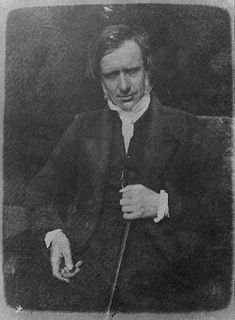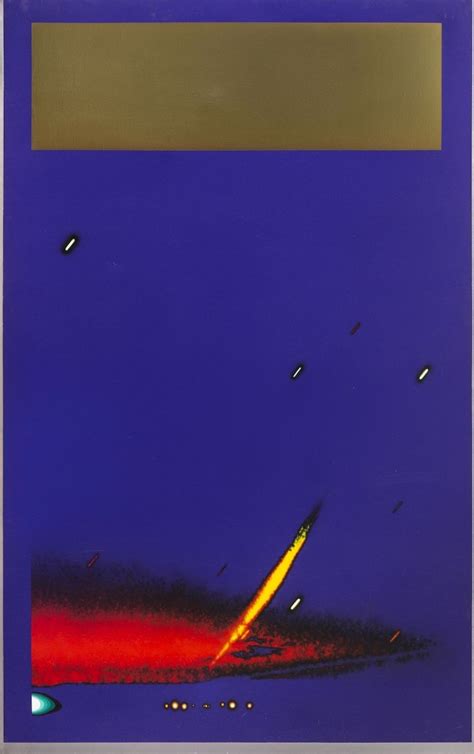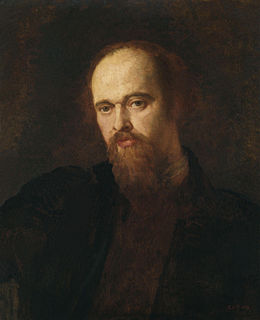A Quote by Marcus Aurelius
Thou seest how few be the things, the which if a man has at his command his life flows gently on and is divine.
Related Quotes
Sin! Sin! Thou art a hateful and horrible thing, that abominable thing which God hates. And what wonder? Thou hast insulted His holy majesty; thou hast bereaved Him of beloved children; thou hast crucified the Son of His infinite love; thou hast vexed His gracious Spirit; thou hast defied His power; thou hast despised His grace; and in the body and blood of Jesus, as if that were a common thing, thou hast trodden under foot His matchless mercy. Surely, brethren, the wonder of wonders is, that sin is not that abominable thing which we also hate.
When man of slender visits you / Nothing on earth that one can do / In well he’ll hide, or watery hole / And he will eat your mortal soul / so if thou seest the man so thin / pray you don’t see him again / for he is not from world we know / he cometh from far down below / on his bed of dirt from grave / from his dank and silent cave / he watches you yet has no sight / he taketh you away at night
That time of year thou mayst in me behold When yellow leaves, or none, or few, do hang Upon those boughs which shake against the cold, Bare ruin'd choirs, where late the sweet birds sang. In me thou seest the twilight of such day, As after sunset fadeth in the west, Which by-and-by black night doth take away.
A man asked Muhammad what was the mark whereby he might know the reality of his faith. Muhammad said, 'If thou derive pleasure from the good which thou hast performed and thou be grieved for the evil which thou hast committed, thou art a true believer.' The man said. 'In what doth a fault really consist' Muhammad said, 'when action pricketh thy conscience, forsake it.'
Dost thou understand me, sinful soul? He wrestled with justice, that thou mightest have rest; He wept and mourned, that thou mightest laugh and rejoice; He was betrayed, that thou mightest go free; was apprehended, that thou mightest escape; He was condemned, that thou mightest be justified; and was killed, that thou mightest live; He wore a crown of thorns, that thou mightest wear a crown of glory; and was nailed to the cross, with His arms wide open, to show with what freeness all His merits shall be bestowed on the coming soul; and how heartily He will receive it into His bosom?
Compassionate Saviour! We welcome Thee to our world, We welcome Thee to our hearts. We bless Thee for the Divine goodness Thou hast brought from heaven; for the souls Thou hast warmed with love to man, and lifted up in love to God; for the efforts of divine philanthropy which Thou hast inspired; and for that hope of a pure celestial life, through which Thy disciples triumph over death.
The lowest standards of ethics of which a right-thinking man can possibly conceive is taught to the common soldier whose trade is to shoot his fellow men. In youth he may have learned the command, 'Thou shalt not kill,' but the ruler takes the boy just as he enters manhood and teaches him that his highest duty is to shoot a bullet through his neighbor's heart - and this, unmoved by passion or feeling or hatred, and without the least regard to right or wrong, but simply because his ruler gives the word.
Mary lived in the divine Eucharist, the center of her love. All her thoughts, words, and actions sprang from It like the rays from the sun. The Eucharist was the oracle which she consulted, the grace which she followed. But Jesus Christ in His Sacrament lives the same life of love which consumed Him in His mortal days. In His sacramental state He continues to adore His Father by His depthless self-abasement. He is still the Mediator and Interceder with divine goodness for the salvation of men
I believe that the unity of man as opposed to other living things derives from the fact that man is the conscious life of himself. Man is conscious of himself, of his future, which is
death, of his smallness, of his impotence; he is aware of others as others; man is in nature, subject to its laws even if he transcends it with his thought.









































